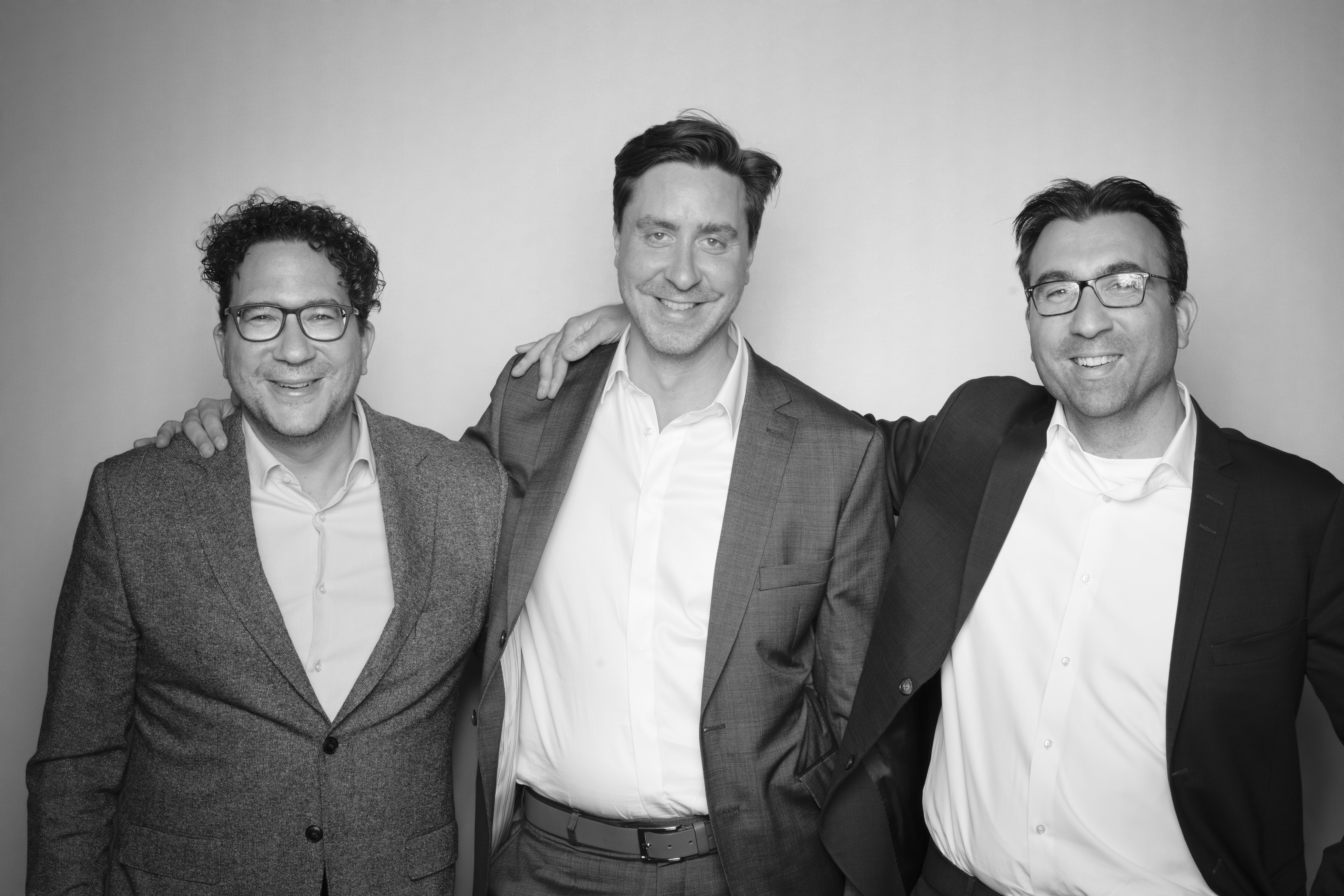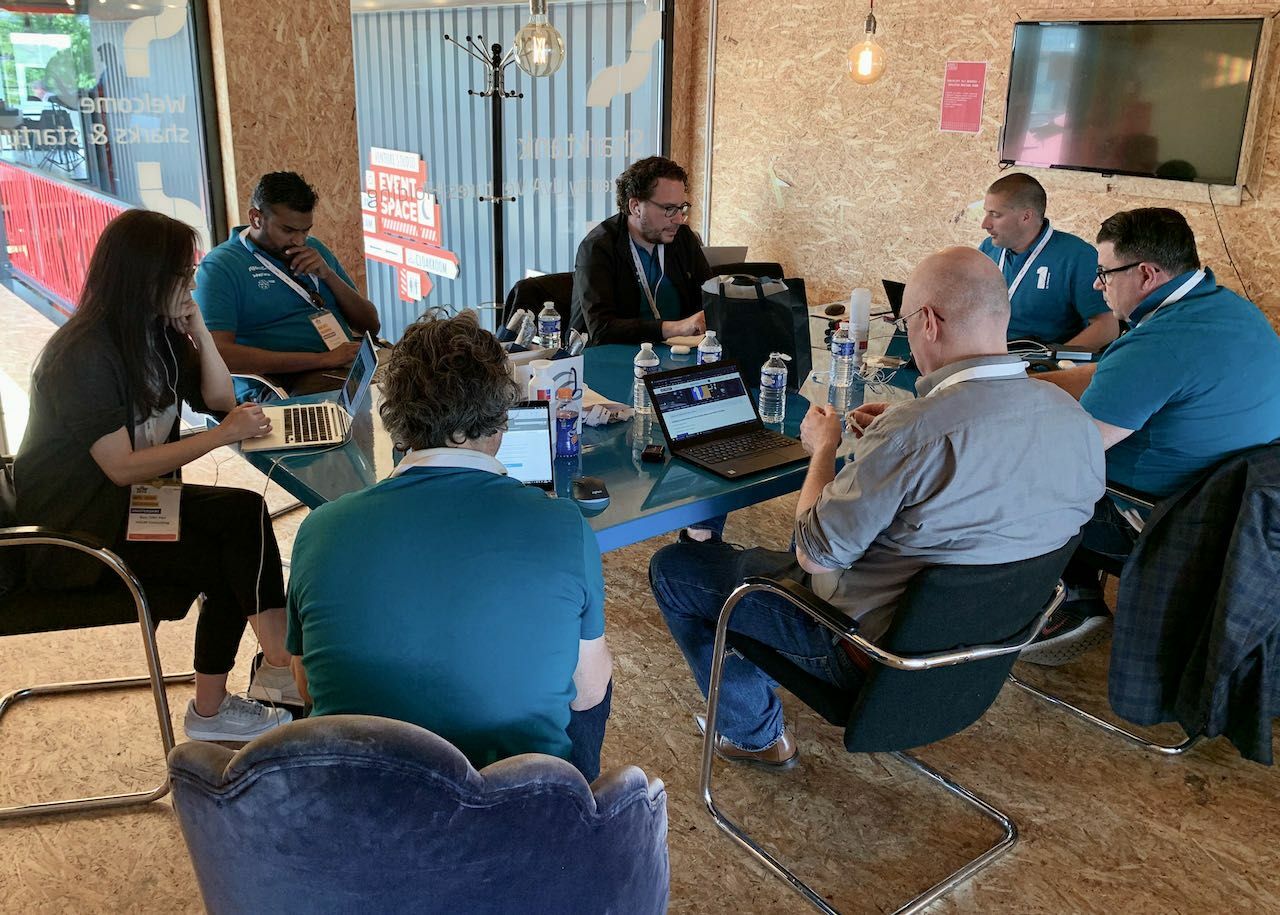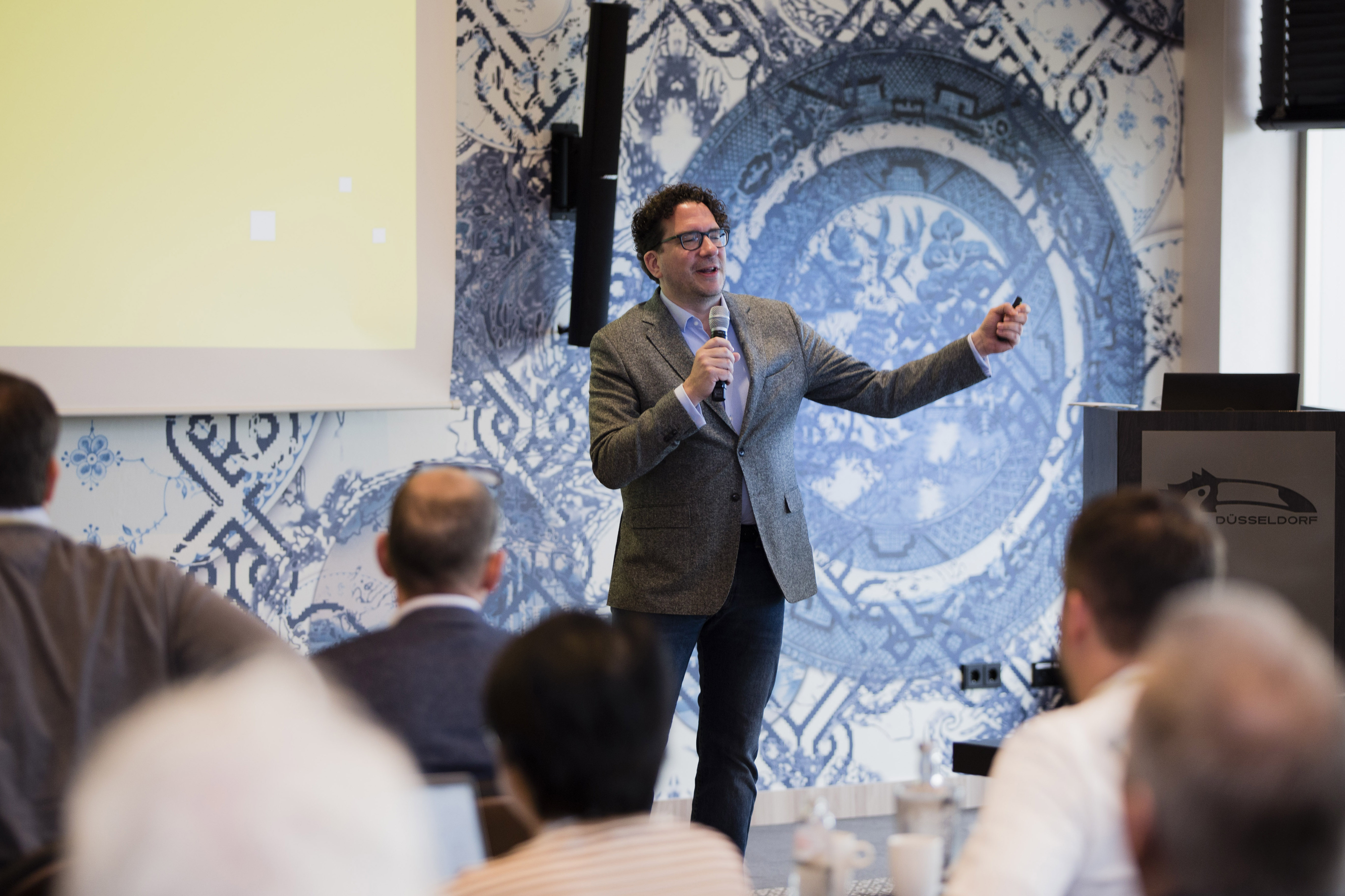Talk to Go: Agile corporate culture and software development
Christian Riege, SVP Software Development tells us in an interview his thoughts on agile corporate culture, the advantages of open source and a mindset where “people are the center of attention”.
Christian, you’ve been with Riege Software since 1987. What are your most important lessons so far?
Simplicity means “mastery” this leads to the next lesson: “divide and conquer”. In other words, problems should be broken down into sub-problems until you can understand each individual component. This is the only way to find an adequate solution. Computers serve as tools in this process, they are not the solution.
“Digital Logistics with a Human Heart” - This is your guiding principle. Why is it important for Riege to put people at the center of all its business activities?
Our employees, partners and customers are people. It is about not losing sight of people in a world that is becoming increasingly digital. We want to create humane working conditions for our employees worldwide, we want to communicate with our business partners on a human-to-human basis, and we want to provide our customers with a human-friendly working environment.
Software in the B2B environment is often characterized by the fact that it is tailored to the decision-makers and not to the users. Our approach is very different: Users engage with the software every working day - it should be at least an equivalent, if not “better” experience for them.
You were involved in introducing agile management structures at Riege. How would you describe the mission in your own words?
From my point of view, the mission of management is to empower our employees to make decisions as a team or individually. And also, be accountable for the results as a team, celebrate successes and learn from mistakes. We only provide the strategy “from the top”. The way this strategy is implemented is up to the individual teams. We consider it our task to create a basis “from below” on which the teams can successfully implement this strategy.
What do you consider to be a good corporate culture?
I can point to our core values of respect, integrity and sustainability. I think trust is also extremely important, but that comes naturally from the above values.

F.l.t.r. Christian, Benjamin and Tobias Riege

The jury cast of the IATA Hackathon 2022 in Amsterdam

Christian at the customer event Inside Scope
What is your engineering strategy for the further development of Scope?
We won’t be able to reinvent Scope from scratch. And we don’t want to. Both we and our customers know Scope’s strengths and weaknesses very well. We have a very clear idea of where Scope should and will develop over the next few years. Important keywords that indicate a direction are, for example, “cloud”, “mobile first” and “services”.
Strategically, we are tackling this by extracting little pieces from the large marble block that is Scope, piece by piece, and building them more modern, stable and scalable on a new base (the cloud).
Last year, Riege developed the ONEverter, an open-source tool which enables the conversion of data from the IATA Cargo XML format to ONE Record JSON. Where do you see the advantages of open source?
Open source is not a panacea: software does not automatically become better by being open source. But where open source really helps - and this is also one of the reasons why ONEverter was released under an open-source license - is to objectify the discussion about open standards on a technical level, to deepen it, and at the same time to simplify it.
It is one thing for an institution - such as IATA - to set standards in text form. But it is the digital manifestation of that standard in a piece of software that brings the standard to life. An open-source implementation of the software allows discussion across organizations, and without political stumbling blocks.
If, in addition to the openness of the source code, an appropriate “permissive open-source license” is chosen, it becomes very easy and inexpensive for an interested party to adapt this standard in their own systems. These licenses allow the reuse of the open-source software in proprietary systems.
Which trends in digitalization do you see coming to the logistics industry in the next few years, and which obstacles must be cleared in the digital transformation?
In my opinion, the obstacles have been the same for 30 years: How do companies exchange data with each other in an easy and inexpensive way?
At least, we’re no longer talking about basic techniques these days. It is now clear that companies are networked via the Internet and use it to exchange data. But then things get fuzzy and a new discussion about transmission protocols, etc., is sparked. Yet this is not a moot point, because nowadays, everything worth taking seriously runs over HTTP and APIs.
An API also needs to be standardized: otherwise, the complexity of connecting systems grows exponentially. That’s why we invest so many resources in ONE Record. Here, everything from the protocol level to the API to the transported data is standardized. This approach is new - until now, we only ever talked about one aspect at a time.
What advice would you give to developers who apply to Riege?
Be open. Watch. Learn.
Show interest, not only in the software, but also in the people who must work with your software. If you help these people to make their daily work a little bit easier, a little bit friendlier, a little bit better, you will reap eternal gratitude.
But also: Question, criticize constructively, ask “stupid” questions. Why do you do it this way? Why does the user do it that way? Is there no other way? Why don’t we try something different?
Our company values, voices from real employees and even more reasons to work at Riege can be found here: riege.com/career.